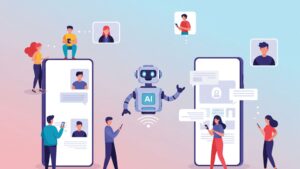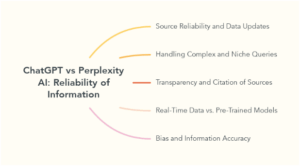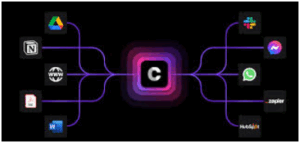So picture this: It’s midnight, I’ve got three tabs open, a wine glass in hand, and my group chat blowing up with “Where are we going, though??” energy. I thought, “Why not ask ChatGPT to help me plan our girls’ getaway?” Big moment.
I typed in my query and waited for the digital magic. That’s when the big question hit me: how accurate is Chat GPT?
Let’s just say… it tried. Some recs were chef’s kisses. Others? Total curveballs. Like, who sends four fashion-forward city girls to a cabin in the middle of nowhere with zero nightlife?
I’ve since gone down a rabbit hole testing its accuracy on everything from recipes to restaurant picks, and honey, I’ve got thoughts.
Can You Actually Rely on ChatGPT’s Info?

If you’re wondering whether ChatGPT is your new BFF for everyday answers, the short answer is… kinda. It’s brilliant at giving general info fast. Need a definition, a brainstorm, or some inspo? Boom. It delivers.
But when you start asking for specific facts — like opening hours of a tiny ramen shop in Koreatown or the latest celeb tea — that’s where things get shaky.
Why? Because it doesn’t pull real-time info unless hooked up with a live browsing tool (and even then, double-checking is your best friend).
Think of it like that smart friend who sounds confident at brunch but doesn’t always know what they’re talking about. You love ’em, but you fact-check ’em later.
What Does “Accuracy” Even Mean When It Comes to ChatGPT?

Let’s break it down. When we talk about how accurate is Chat GPT, we’re usually talking about three things:
- Factual correctness: Does it give you the right answer?
- Context awareness: Does it understand exactly what you’re asking?
- Up-to-dateness: Is the info fresh or fossil-level outdated?
ChatGPT has a solid grasp on general knowledge and concepts up to a certain cutoff date (usually a few months back), and it can sound super convincing — which is both amazing and dangerous. Just because it sounds confident doesn’t mean it’s right.
Example: I once asked it for a cocktail recipe and it suggested muddling basil into a Manhattan. Basil. In Manhattan. I gasped audibly.
How Accurate is ChatGPT When It Comes to Data and Research?

Image source- Reddit
If you’re wondering whether ChatGPT can help you with academic research, the answer is a bit nuanced.
It can provide a great summary of broad concepts and even break down complex theories into bite-sized explanations, which is fantastic for those starting their research journey.
However, the key thing to remember is that ChatGPT doesn’t access real-time data or databases (unless it’s paired with a live browsing tool).
For instance, if you ask about the latest study on climate change or a recent medical breakthrough, its response might be based on data from years ago, which can lead to outdated information.
So, while ChatGPT is great for a foundational understanding or for inspiration, anything that requires up-to-the-minute research, statistics, or sources should be double-checked using more specialized academic tools or current databases.
Think of ChatGPT as your entry point to a topic, but not your go-to for citation-worthy research.
How Does ChatGPT Handle Complex or Niche Topics?

Here’s where it gets juicy. I tested it with questions like “What’s the most energy-efficient heat pump for a 1940s rowhouse in Philly?” and “Can you explain string theory like I’m five?” It actually did a decent job simplifying nerdy stuff — not flawless, but definitely helpful.
But on hyper-local or industry-specific queries, it struggles. Ask it about a niche law in your state or the best sushi in your zip code, and it’ll likely give you a general response or, worse, make something up.
So, how accurate is Chat GPT? The deeper and weirder your question, the more you need to double-check it. Trust, but verify, darling.
Does ChatGPT Get Better Over Time?
Short answer: Yes, but not like a fine wine — more like a phone that gets updates.
OpenAI rolls out new versions that improve accuracy, reduce hallucinations (yes, that’s the term for when it just… makes stuff up), and give it more personality. But even the best version can’t know what happened yesterday unless it’s got access to the internet.
The tech’s improving like crazy, though. I’ve noticed it’s gotten better at understanding nuance — like when I ask for a vegan, gluten-free, low-FODMAP recipe that doesn’t taste like cardboard. It used to flounder. Now? It’s giving me actual flavor.
How to Make the Most of How Accurate Is Chat GPT
If you’re gonna trust ChatGPT to help you live your best life, you need to know how to finesse it. Here’s how I roll:
First, be specific with your prompts. Instead of saying, “Tell me about skincare,” say, “What’s the best anti-aging routine for dry skin in your 30s using mostly drugstore products?” The more context you give it, the smarter the output.
Second, always double-check anything you’ll act on — health tips, financial advice, travel info. Use it to get a head start, then fact-check with trusted sources or the official websites.
And finally, don’t let it replace your own brain. Use ChatGPT as a sassy, smart assistant who’s here to make your life easier, not a magical oracle who knows everything.
FAQ: Real People, Real Questions
Is ChatGPT accurate for medical advice?
Whew, okay — big no here. It can help you understand general terms or explain conditions in plain English, but it’s not a substitute for a doctor. Use it to get context before a visit, not instead of one. Always, always check with a licensed pro.
Can I trust ChatGPT for travel planning?
I’d say it’s great for generating ideas — like cute neighborhoods, general itineraries, or must-see spots. But don’t rely on it for things like open hours, local events, or transit schedules. Always verify with Google Maps, TripAdvisor, or the place’s actual website.
Does ChatGPT ever just make stuff up?
Yes. It’s called “hallucinating,” and it happens when the AI fills in gaps with what sounds right. Sometimes it even invents fake studies or quotes. If something sounds off or too perfect, Google it before trusting it.
How does it compare to just using Google?
Google’s great for getting links, but ChatGPT is like chatting with a really smart assistant. It summarizes, explains, and simplifies. But for raw facts or breaking news, Google still wins. Best case? Use both.
Is ChatGPT Reliable for Personal or Professional Advice?
When it comes to personal or professional advice — such as career decisions, financial planning, or relationship tips — ChatGPT can be a helpful guide to spark ideas, but don’t mistake it for a professional expert.
It can offer general advice, motivational quotes, or popular tips from established self-help gurus, but its recommendations are based on patterns in data rather than personal expertise.
For example, if you’re looking for advice on handling a work conflict, ChatGPT might suggest effective communication strategies or conflict-resolution techniques.
But just like asking your friend for advice, it’s worth considering whether the response fits your unique situation. Always cross-check professional advice with qualified experts to ensure you’re making the best choice based on your personal circumstances.
Final Scoop Before You Jump In
So, how accurate is Chat GPT? Here’s the real tea: it’s helpful, smart, and sometimes hilarious — but it’s not perfect. Think of it like that stylish friend who always has opinions and great suggestions, but occasionally recommends white jeans to a barbecue.
Use ChatGPT when you want a head start, a brainstorm, or a simplified explanation. But always use your own judgment and do a quick double-check. I still love it for planning trips (with a little backup research), writing sassy emails, or decoding techy stuff — but I wouldn’t let it pick my wedding dress.
And hey — the more you use it, the better you’ll get at spotting what’s solid and what’s sus. Now go forth and chat smart.
 aspectswebdesign.com
aspectswebdesign.com
